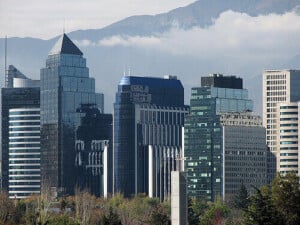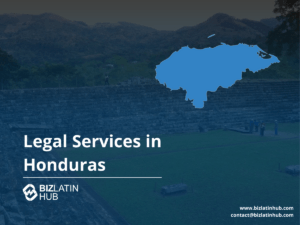After successfully completing your company formation in Chile, it is time to start hiring personnel. However, employing staff in Chile differs from other countries. It is if of vital importance that employers are aware of their obligations with regards to employment in order to stay compliant with local law.
In this article, we will provide valuable information which should be taken into account when engaging staff in Chile.
Employment Law – What Are the General Benefits for Employees in Chile?
In Chile, it is mandatory for companies to share at least 30% of their taxable income with employees. Employees are entitled to 15 working days (Monday to Friday) paid vacations after 1 year of continuous employment and employees with 10 or more years of experience receive an additional day of vacation for every subsequent three years of service.
Furthermore, in Chile, it is common to grant employees the following discretionary benefits:
- Additional Medical Insurance
- Life Insurance
- Food/Restaurant Coupons
- Stock/Share Options
- Christmas Bonus and National Independence Day holiday Bonus
The payment of white collar staff salary is typically on a bi-monthly or monthly basis (varies according to the employer).
How Can Employees Be Hired in Chile?

Employees can be hired part-time (up to 30 hours of work per week) or full-time. Fixed-term employment agreements have a maximum duration of 12 months and can be extended up to 24 months for employees holding a technical position or having a professional title granted by an educational institution recognized in Chile.
In Chile, it is also possible to hire an independent contractor. Chilean law authorizes companies to outsource all kind of services. Contract workers are dependent and subordinated to the contractor company.
If the contractor company breaches labour or social security payment obligations towards its employees (including severance compensation), the client may be jointly liable for the breaches.
In order to hire foreign personnel, the employer must file a visa application with the Chilean immigration authorities to obtain a temporary visa authorizing a foreign national to live and work in Chile. Permission to work can also be granted to an individual whilst on a Chilean tourist visa.
In order to contract an employee, a written employment agreement must be executed under Chilean Labor Law. Individual labour contracts must contain certain provisions, including the position of the employee and description of the work to be rendered, the place of work, the remuneration to be paid by the employer and the term of payment of the compensation.
In terms of probationary periods, Chilean law does not have any regulations. Instead, it is market practice for companies to use the above mentioned fixed-term employment agreements as de facto probationary periods. If an employee’s performance during the initial fixed term is satisfactory to the employer, the employer can renew the employment contract with the employee or offer an indefinite-term employment agreement.
How Are Employee Expenses Paid?
In Chile, the total monthly expenses per employee are approximately every employee’s net salary + 24-26%. Salaries and remuneration similar to salaries are subject to individual income tax and are processed via the payroll.
Want to Find More Information About Doing Business in Chile?
As mentioned before, in recent years, Chile has become an attractive destination for foreigners to do business. However, due to cultural and legal differences, there might arise some complexities when entering the Chilean market.
At Biz Latin Hub, we have extensive experience in helping foreigners penetrate Latin American markets through the provision of tailored market-entry and back-office services. If you need help doing business in Chile or Latin America, get in contact with Biz Latin Hub. Reach out to Allan at here to see how we can support you.
Need help breaking into one of the various attractive Latin American markets? Watch our video below to find out how we can assist.






